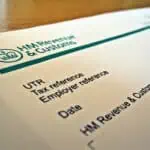Limited company year-end guide
Reading Time:
First-time limited company directors may find business year-end overwhelming, but you’ll be prepared with our checklist and comprehensive guide.
Company year-end
Company ‘Year End is the end of the accounting period, and it’s also when a limited business must deliver documentation to HMRC and Companies House.
This is basic instruction on what is necessary; filling up your business accounts may be difficult; Fusion Accountants can assist you and submit papers to the HMRC.
Company year-end checklist
Company year-end can be a daunting and stressful period for your company; our checklist below can help you stay ahead.
1. Gather Records
1a: Bank Statements
Collect all your bank statements for the period in question.
- If you use accounting software like Xero, QuickBooks, or FreeAgent that has live bank feeds, you may not need to give your accountant your complete bank statements. However, it is still important that the balances in your accounting software match the balances on your bank statements.
1b: Sales
- Make sure you have posted or raised all sales invoices for the period in your accounting software before sending them to your accountant. This will make sure that your income is not understated.
- For companies who provide invoices at the end of work delivery (service type businesses, e.g., You bill at the end of the week), look at the invoices and determine which relate to the tax year you are preparing for and let your accounting know)
Example
Invoice 3rd July that relates to 3rd June tell your accountant so they can post an accrued income journal
- You were billed. However, if the services have not yet been delivered, some revenue is received in advance but is not income until the service is completed.
Example
You are paid in advance for the month on 15th June 2022 for services rendered on the 15/06/2022-15/07/2022
Your year-end is 30th June 2022
Therefore, some funds will be associated with the previous year (2022), and some will relate to the following year (2023).
Your accountant will create a deferred income journal.
1c: Purchases
- Prepayments: Let your accountant know if you’ve paid for any products or services you won’t get until the current accounting period is over.
- Accruals: Take note of any expense that is related to the accounting period in question but won’t be paid until the next accounting period (You did not receive a supplier invoice at the time the expense occurred)
Example 1
On 1st January 2022, you took out insurance for one year 9(1/01/2022 – 31/12/2022)
Your year-end is on 30th June 2022
On 30th June, you already paid half, which will be recognised for the previous year (2022) and a half for the current tax year (2023)
Example 2
You asked your accountant to prepare your accounts for 30th June 2022, but he invoices you on 13th July 2022 (the next accounting period) – the work will relate to the previous year.
Send to accountant as accruals
Example 3
On 1st May 2022, you paid £16000 rent for your office space (3 months)
Your year-end is 30th June 2022
This means the following:
- May 2022- June 2022 would fall into the current year.
- June – July would fall into the next year-end.

1d: Out of Pocket Expenses & Staff Expenses
- Money spent directly from personal funds, as opposed to company funds or a company credit card, is considered expenses paid out of your own money (out of your pocket).
All out-of-pocket expenses will be reimbursed back to you
- If you have already claimed, you do not need to worry.
- If you have not claimed, you should note these expenses.
Staff will need to claim expenses back from the business, which is usually at the same time every month.
Examples of out-of-pocket expenses
- Airfare
- Meals
- Stationary
Useful tips to help you remember these expenses
Keep a journal and write down purchases – Set monthly reminders to do this regularly.
- Download the Xero/QuickBooks/FreeAgent app and manage expenses on the go.
- Ask all your staff to submit expenses relating to the period you are preparing accounts for and set deadlines.
- Send staff reminders via email.
Plan
3a: Consult Your Accountant About Ways to Minimise Taxes.
- See how you can further save on your tax; this may be identifying additional expenses you can put through to the business, such as identifying tax allowances.
3b: Consult Your Accountant on How to Maximise Tax Savings on Salary vs Dividends
- Depending on the circumstances, you may not need to take all the Profit; instead, you may reinvest it into the firm.
- You may include your business partner.
HMRC Deadlines
You must file your accounts and tax return with Companies House and HMRC by these dates (HMRC)
| Companies House | Companies House |
|---|---|
| File your company’s first accounts with Companies House | After 21 months after registering with Companies House |
| File annual accounts | Nine months following your company’s year-end |
| HMRC | HMRC |
|---|---|
| Pay Corporation Tax or notify the HMRC you owe none | Corporation Tax returns are due nine months and one day after your accounting period ends. |
| File a Company Tax Return | 12 months after Corporation Tax ends |
Missed Deadlines
The HMRC and Companies House penalise people who miss deadlines, encouraging limited companies to submit everything on time.
Fines Imposed by HMRC for Late Filing
| How late? | Penalty |
|---|---|
| 1 Day | £100 |
| 3 Months | Another £100 |
| 6 Months | Unpaid Corporation Tax is subject to an additional 10% penalty imposed by HMRC. |
| 12 Months | An additional 10% of any outstanding tax |
Penalties imposed by Companies House for late filings
| How late? | Penalty |
|---|---|
| Up to a month late | £100 |
| 1 to 3 months late | Another £100 |
| 3 to 6 months late | Unpaid Corporation Tax is subject ato an additional 10% penalty imposed by HMRC. |
| Over six months late | An additional 10% of any outstanding tax |
| Two years of late filing in a row | Double penalties |
Need some assistance?
This checklist is meant to serve just as a guide, and if you want more in-depth information, you should talk to a professional accountant. Call our helpful and knowledgeable specialist Limited Company accountant on 020 8577 0200 to book a free consultation.






